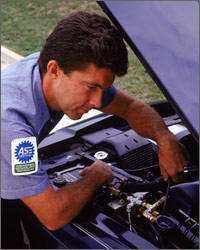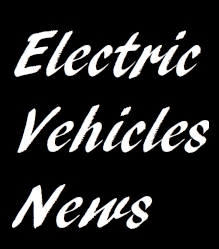Conversion
Conventional original
equipment manufacturer (OEM) vehicles altered to operate on propane,
natural gas, methane gas, ethanol, or electricity are classified as
aftermarket alternative fuel vehicle (AFV) conversions. In the United
States, all vehicle conversions (except pure battery electric vehicles)
must meet current applicable U.S. Environmental Protection Agency (EPA)
standards. EPA instituted these standards to assure unimpaired emission
control of motor vehicles throughout their useful life. Vehicles operating
in California must follow conversion rules issued by the
California Air Resources Board (CARB).
In addition, vehicle conversions that require the addition of heavy
battery systems or additional fuel tanks that may alter a vehicle's center
of gravity, payload capacity, or handling characteristics may also need to
be safety crash tested and certified to comply with Federal Motor Vehicle
Safety Standards (FMVSS) and/or other National Highway Traffic Safety
Administration (NHTSA) regulations.
Electric Vehicle Conversions
The cost of converting a gasoline-powered vehicle to an electric
vehicle can be high. Electric cars can run on either alternating current
(AC) or direct current (DC). If the motor is an AC motor, it will probably
be a three-phase AC motor running at 240 volts AC with a 300-volt battery
pack. A DC motor may run on anything from 96 to 192 volts.
DC installations tend to be simpler and less expensive. For a typical
DC system conversion, the cost will be $6,000 to $10,000 for parts,
including a motor ($1,000 to $2,000), controller ($1,000 to $2,000),
adapter plate ($500 to $1,000), and batteries ($1,000 to $2,000), plus
$3,500 to $8,000 for labor. AC system conversion will cost $10,000 or more
for parts and $2,000 or more for batteries for these higher-voltage
systems. The cost of conversion can be partially offset by lower operating
costs. Because conversion to all-electric power
does not require U.S. Environmental Protection Agency certification,
conversions are often performed by amateur mechanics and high school and
college automotive training facilities.
The most popular vehicles for electric conversion are vehicles with
manual transmissions, including the Volkswagen Rabbit, Porsche 914, Honda
Civic, Honda CRX, Ford Escort, and air-cooled Volkswagens.
|

